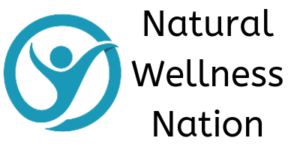Irritable bowel syndrome (IBS) is a distressing chronic gsstrointestinal condition that affects 10 to 20% (in the US and UK) of the population, with a predominance of women affected. Symptoms include abdominal pain and either diarrhea or constipation — or both. Conditions that often also affect the same person with IBS include fibromyalgia (up to 70% of fibromyalgia sufferers), chronic fatigue syndrome, and multiple chemical sensitivity, along with TMJ (temporomandibular joint pain) and/or intersitial cystitis (bladder pain) or non-specific pelvic pain.
Many people with IBS suffer from anxiety problems. IBS per se may run in families.
IBS may begin gradually, without the affected person realizing that it is happening. As a result, many people with IBS do not go to their doctors for an evaluation. Nevertheless, the frequent GI symptoms can bring down quality of life.
Many IBS sufferers may have already tried pharmaceutical drugs and other medical treatments recommended by their doctor. But, many of these patients would have had little or no success with these treatments.
Alternative Health Care Treatments
Natural therapies have proven very beneficial in the treatment of many illnesses, including IBS. Here are a few that have given relief to many sufferers.
Acupuncture
Acupuncture is a beneficial therapy for chronic pain. It is not fully understood how this traditional Chinese treatment works. Masters of this therapy believe the needles stimulate electronic signals in the body. They explain that the signals either encourage the body to release pain killing chemicals, or they activate the body’s natural healing system.
Acupuncture is a popular alternative therapy for IBS; some tests have found it to be very helpful in the relief of stomach pain and bloating.
Hypnosis
Many studies have been conducted to determine if focusing the mind with hypnotherapy is able to improve the emotional and physical symptoms in people with IBS.
Results of these studies have been very encouraging. Study sessions that have focused on the problems the participants had with IBS have led to long term improvement in both emotional and physical health.
Follow-up research found the improvement had been maintained six months after the studies had ended.
Cognitive Behavior Therapy (CBT)
Cognitive behavior therapy teaches people to identify and change false opinions they have formed about themselves over the years. It is used to train people with IBS how they can ease their symptoms and improve their quality of life.
In a study researchers gave a group of IBS patients up to 10 weeks CBT therapy sessions. The sessions covered information on IBS, and muscle relaxation training. Sessions on ways to curb worries about the illness were included. The patients were also taught how to develop a flexible set of problem-solving skills related to IBS. Results showed that 60% to 75% of participants had improvement in their symptoms.
Probiotics
Probiotics are live bacteria found in fermented food like yoghurt, kefir and is also available in supplements.
Several published reviews on random clinical trials included probiotics and placebos in a study. Probiotics proved to have a better result in relieving abdominal pain and other IBS symptoms than placebos.
IBS is a disorder characterized by abdominal pain, diarrhea or constipation, or a combination of both. Symptoms vary from patient to patient, so it is understandable that what provides relief for one person, will not necessarily work for another.
Some alternate health professionals believe probiotics are very worthwhile. They are known to restore the good bacteria in the gut. An added benefit is that studies have shown that they do not appear to have any side effects.
Other Natural Supplements
As well as probiotics, supplements such as evening primrose oil, borage oil and fish oil may also be helpful in relieving symptoms of IBS.
The oil supplements are known to have a calming effect on the gut. Primrose oil supplements are especially helpful to women during their menstrual cycle. Many have found primrose oil relieves pain, discomfort and bloating, that can increase at this time of the month.
Herbs
Some herbs have found favor with a lot of IBS sufferers. Peppermint and ginger have been shown to have a calming effect on the muscles of the colon. When the muscles in the colon are tense, symptoms like diarrhea and abdominal discomfort increase. This is why peppermint and ginger tea is popular with IBS patients.
Some people find chamomile tea helpful to lessen symptoms of GI distress as well as reduce anxiety and insomnia.
Herbs and supplements may interact adversely with some medications. It is advisable to talk to your doctor or pharmacist if you are taking any prescribed medication.
Conclusions
If you have been diagnosed with IBS, you may want to try the following natural methods to reduce the symptoms:
” Probiotics – You’ll find probiotics (live bacteria) in fermented foods such as yogurt and kefir or in supplements. Some trials indicate that probiotics may help lessen IBS symptoms such as abdominal pain. You can find specialized probiotics in supplement form if you are dairy-intolerant or histamine-intolerant.
” Fiber – Fiber found in such foods as fruits, vegetable and whole grains are full of nutrients and vitamins and may make a difference in reducing the symptoms of irritable bowel syndrome.
” Prebiotics – There are conflicting results for the non-digestible carbohydrates known as prebiotics. Their job is to make sure the good bacteria in your digestive system is fed. Onions, garlic, raw asparagus and bananas can help the microflora in your intestines stay healthy.
” Peppermint Oil – Pain resulting from IBS seems to be alleviated by this herbal remedy. It is an anti-spasmodic that can be especially effective in lessening the pain associated with irritable bowel syndrome.
” Digestive Enzymes – Supplements of digestive enzymes may be helpful, especially if your main symptom is diarrhea.
The above dietary inclusions can help reduce the intensity of symptoms, and over time reduce the frequency of flares of IBS. There are also dietary exclusions and lifestyle changes that will prove effective in reducing and even preventing IBS experiences. Instead of tolerating or only treating the symptoms, try the following to free yourself from IBS:
- Lower the stress level in your life.
- Exercise
- Eliminate foods such as carbonated drinks, raw fruits and some vegetables such as cabbage and cauliflower.
- Adopt a gluten-free diet. This dietary change may help eliminate diarrhea symptoms.
- If eliminating gluten-containing foods like wheat and barley is not enough, consider going onto a version of the anti-inflammatory Mediterranean diet.
- Eliminate fermentable oligo-di-, monosaccharides and polyols (FODMAPs) from your diet that are present in various grains, dairy and vegetables.
* Carbohydrates such as lactose, fructose and fructans may also contain FODMAPs. - Get enough sleep.
In short, talk with your doctor and decide what approaches make the most sense for your situation. There are potential solutions out there in the non-drug alternative health care world for you.







